“Social change moves at the speed of relationships. Relationships move at the speed of trust.” -- Bailey and Flowers
When I first met the residents of Jermik Ankyun, they were gathered together for Christmas brunch. Although my entrance interrupted a toast, the group warmly invited me to their festive table of fish, rice with dried fruits, and baklava.
I smiled and fumbled for some small talk to break the ice. My Armenian is less than perfect, and I wasn’t sure what to say. But I quickly realized there was no ice to be broken -- none of that general awkwardness that so frequently accompanies initial greetings. If anything, I felt sincerely and immediately accepted.
“Sarah, lav es? (Sarah, are you well?)” one of the residents asked, leaning forward eagerly.
“Sarah, Amerikayits es? (Sarah, are you from America?)” from another with meek eyes and a shy smile.
“Sarah, yes lav em yergum (Sarah, I sing well),” announce Anahit, a confident third.
So I asked her to sing for me. Unlike most people I know, Anahit did not demur; she promptly arose from her chair and treated me to a traditional Armenian melody.
Anahit sang richly, with abandon and not without imperfection. And the performance’s beauty lay in that, for she did not sing to gratify her ego, but to bless the room through an art she loves.
----
Natalie Bryant-Rizzieri first set foot in Kapan, Armenia in 2003. Tall and fair, the former Peace Corps volunteer remembers feeling her foreignness starkly. Her pangs of unbelonging were so strong that she contemplated returning to the United States.
But one thing kept her rooted in Kapan: the students at the special school where she worked.
“We became friends in part because we were the same age and we were all outsiders,” she told me, as we sat together in the handicraft room of Jermik Ankyun, the nonprofit Bryant-Rizzieri founded in 2005 to provide forever homes for adults orphans with disabilities.
“I’m not Armenian and they were outsiders because of their disability, so we all joined together,” she continued. “It felt like they were my safe haven, and I think that I eventually became theirs too.”
As the Peace Corps volunteer neared the end of her two-year service, the school planned a joint farewell party. But Bryant-Rizzieri was confused; where were her students going? The director’s answer -- a mental institution -- came as a rude shock. Bryant-Rizzieri refused to accept it.
“In that moment, I told the director, I’ll find them another place to go. And [the director] looked at me [as if to say] you have no idea,” she recalls. “I thought for sure I could find a place. And I didn’t."
The following days were both exhausting and exhilarating. After months of searching for someone to take her friends in, Bryant-Rizzieri found many others who sympathized with her goal, procured a building to house her friends, and identified a partner NGO that would move the young adults in that October. Promising her students that they would soon be safe in the new home, Bryant-Rizzieri returned to America and began a job, monitoring the situation from afar. However, when October came and went with no action from the NGO partner, she, in distress, called Bridget Brown, another former Peace Corps friend and current Jermik Ankyun board member.
The young women agreed that nothing would be done if they did not take the situation into their own hands, so they flew back to the Caucasus.
In Bryant-Rizzieri’s words, the following two weeks were a “madhouse.” She and Brown arrived back in Armenia only to discover that the furniture which had been donated from America to furnish the new forever home had been held up in customs. The officers wanted bribes to release it. No staff had been hired let alone trained and the soon-to-be residents and their belongings still needed to be moved from Kapan to Yerevan.
After sweat, tears and lots of vomiting along the winding road from Kapan to Yerevan, the group slept their first peaceful night (albeit on the floor) of their new home, dubbed "Jermik Ankyun," or Warm Hearth.
As I sat in that very same cozy home so many years later listening to Bryant-Rizzieri’s story, this big question also sat in my mind: Why had she rearranged her life to help this small group of people?
Her response was simple, yet profound.
“I think that everyone just inherently matters,” she told me.
“The world desperately needs what the ‘underdog’ has to offer,” she continued. “I have desperately needed it, too. I needed what [the Jermik Ankyun residents] had to give. I do not know that I would have made it in Armenia if it wasn’t for them and for their friendship.”
Bryant-Rizzieri spoke humbly of her friends’ unique perspectives and joy and honed in on their sincerity and vulnerability in our modern world of masks and filters.
“Their gift is that they always keep that open-heartedness that we are somehow trained out of, and that we learn to sideline,” she told me. “They seem to have that open-heartedness as an inviolable part of them that can’t easily be squashed. That’s a gift they give to me; that’s a gift they give the world.”
“I love their joy, but at the same time,” she told me, “I love how they tell me the hard things and the sad stories and don’t pretend that they’re not real or try to hide them.”
Bryant-Rizzieri also highlighted their big hearts and their willingness to forgive those who have hurt them the most -- something she has witnessed time and again.
“If we could all have that belief in the best of people’s spirits,” she noted, “then the world would be such a different place.”
----
Many of the residents at Jermik Ankyun know little to nothing about their families. All of them are literal or “social” orphans, due to the heartbreaking fact that their parents may still be alive but are unable or unwilling to take care of them.
Historically, orphaned children with disabilities have been placed in special schools or boarding schools, and when they reach adulthood, mental institutions. But Jermik Ankyun is working to change that reality by pulling people with disabilities from these hopeless facilities and settling them in loving forever homes.
I have visited only one mental hospital in Armenia, and the image of its stark halls and peeling paint will always remain with me. Bryant-Rizzieri has visited many, and although she has been scarred by the things she has seen, the experiences have served to galvanize her work.
One horrifying story involved a current resident who had spent time in a large institution before moving permanently to Jermik Ankyun. When Bryant-Rizzieri visited him, it was wintertime. She found him freezing in a room with paneless windows. The young man had lost five to ten kilos in a few weeks and was so overmedicated that his mouth was swollen and his speech was slurred.
Recently, she visited a friend at another institution. “He was desperate for attention and love and touch,” she told me. “He started crying. The whole time, he kept touching my face. I can’t believe you came, I can’t believe you’re here. He asked, do you have a car, can we go, can we leave?”
“The worst I have seen with my own eyes is children chained to beds,” said Bryant-Rizzieri, tears welling in her eyes. “That was a long time ago; I hope it’s different [now].”
If anything, awareness of the systemic problems has now reached the eyes and ears of international bodies. Following his 2017 visit to Armenia, UN Human Rights Council Special Rapporteur Dainius Puras noted the mistaken but prevailing perspective among mental health professionals that institutionalized patients are simply unable to live an independent life.
“Financial and other incentives need to be in place to expand community-based services that empower people with psychosocial or intellectual disabilities, integrate them into communities, support their needs and fulfil their right to live independently in society,” he concluded in his 2018 special report.
Jermik Ankyun is just that kind of community-based solution. In 2018, after more than ten years of meetings and applications in request of government support, Bryant-Rizzieri and her team finally received the news they'd been waiting for: the Ministry of Social Affairs of the Republic of Armenia would cover 40 percent of the running costs of the first home. Last year, the ministry promised 40 percent of the operating costs for the second home and proposed that if Jermik Ankyun opened a third home in 2020, it would cover 40 percent of those costs as well.
If all goes as planned, eight more adults with disabilities will gain a forever home in 2020.
----
Although Jermik Ankyun Foundation’s staff now have extensive training in social work, behavior management and other relevant fields, it was love, not expertise, that initially drove the enterprise. Bryant-Rizzieri shared with me that none of her first hires had ever even seen a person with a disability; she simply had to trust that she could see their hearts or that their hearts could expand to include these people she dearly loved. Now, these people are the biggest evangelists for Jermik Ankyun’s work. And their family members -- many of whom were initially skeptical -- even choose to spend their free time visiting the homes’ residents.
“I don’t think there is anything that can make [change happen] more quickly except for introducing more and more people to our residents and our work,” Bryant-Rizzieri says, “and then letting them go through the process of uncomfortability, despair, disgust or whatever they feel, and ride that wave to the other side.”
She credits her unique approach toward people with disabilities to the very early exposure she had to a family friend with Down Syndrome.
“From a really young age, it was normal to me,” Bryant-Rizzieri reflects. “I knew [Daniel] was different on some level, but I thought it was a “normal” different and that everyone loved people like him.”
Although it comes natural to her, she understands the difficulty of loving people with disabilities, and the resultant guilt which often comes with those feelings.
“I spend so much time telling people that it’s actually just the overcoming of those feelings that matters and that it’s not a concern that you ever felt disgust or overwhelming sadness… Most every human being has to overcome that,” she says.
And Armenians are slowly, but surely, doing so.
“When I came in 2003 to Kapan, you never saw someone with a disability on the street,” Bryant-Rizzieri told me. “And when I would visit the homes of people with disabilities, some of them would say they’d never been downstairs or outside.”
At the time, Bryant-Rizzieri understood that change happens by defying social constructs, so she took her friends to public places. People stared and spoke rudely to her group. It was an “unfair burden” for her friends, but there wasn’t any other way to challenge the status quo.
Now, Bryant-Rizzieri has witnessed the rise in support centers for people with disabilities. She sees them on the street and with their families. Slowly, they are exerting their presence and reminding society that they exist and matter.
A few years ago, she saw a poster of people in wheelchairs in the Yerevan metro. “I just started weeping,” she told me. “I just feel like it’s those things, little by little, that will change the world. Today, our residents go to restaurants, they go to the bazaar… and every time they do that, I feel like it changes people just a little bit.”
----
As we closed our conversation, I asked Bryant-Rizzieri about something I had read on Jermik Ankyun’s website -- a push to change the language around disability.
Her voice got a bit more thoughtful as she recounted the story of a Jermik Ankyun donor who encouraged her to replace the term “disabilities” with “diverse abilities.”
“As soon as they explained it, a light went on in my head,” Bryant-Rizzieri told me.
Ever since, she has been on a self-described “journey of learning” about the way language shapes our thinking of the world. Whether we mean it or not, the word “disability” tends to connote “inability” -- something which is patently untrue and limits our perceptions of people’s potential. From Anahit’s gift of song to Agappy’s adroitness with the paintbrush to Davit’s skill with yarn and shuttle, each has something unique to offer the world.
“My proudest moments are when people come here and they don’t know who is staff and who is a resident,” Bryant-Rizzieri says. “I want it to simply be a home, to be as much like a family as possible, with no distinction between those who make up our community.”
From all I can gather, she’s achieved just that.
Read the White Paper
Volunteering in Armenia: Key Issues And Challenges
By Ashot Sargsyan , Gevorg Sahakyan , Susanna Gevorgyan
This policy analysis aims to explore the main reasons people volunteer, how volunteer work is regulated and the key issues the volunteering sector faces in the Republic of Armenia.
related articles
With Every Act of Volunteering, a Person Gives a Part of Their Soul
By Gohar Abrahamyan
What motivates people to give of themselves and their time in the pursuit of helping others and their communities? Three women explain.
Volunteering Doesn’t End With the Volunteer
By Shoushan Keshishian
Volunteerism not only contributes to the social wellbeing of the volunteer, but also greatly benefits the communities and societies where it takes place, ensuring sustainable capacity development and building social capital. In Armenia, there is currently no legal framework regulating volunteerism.
Discovering Armenia Through Stories
By Sofia Bergmann
What does it mean to be a volunteer in a country and a society that is vastly different from your own? Sofia Bergmann reflects on her experience in Armenia.
listen to the podcast
Ashot Sargsyan, the co-author of EVN Report's White Paper "Volunteering in Armenia: Key Issues and Challenges" speaks about the potential of volunteerism as a community building tool, a force capable of bringing about change and sustaining developmental goals when the country is short of manpower. Sargsyan also speaks about the need to promote volunteerism and establish regulations that will protect the volunteer and acknowledge his/her input.
Read also
White paper on EVN Report
Transitional Justice Agenda for the Republic of Armenia
By Nerses Kopalyan
Should Armenia implement the tools of transitional justice? This White Paper, developed by Dr. Nerses Kopalyan is a comprehensive transitional justice agenda for the Republic of Armenia.
Future Prospects for Foster Care for Children with Disabilities in Armenia
By Lusine Saghumyan
A child’s right to family life is enshrined in Armenian and international legal documents and considered a priority in Armenia’s 2017-2021 Strategic Plan on the Protection of the Rights of the Child. Here is EVN Report's White Paper about specialized foster care for children with disabilities.
This project is funded by the UK Government's Conflict, Stability and Security Fund.
The opinions expressed are those of the authors' and do not necessarily reflect the official position of the UK Government.

Comments
Donna Mooshian
2/6/2020, 11:54:50 PMWhat an inspiring article! Bryant-Rizzieri is doing fabulous work and it is encouraging to read that attitudes toward those with "diverse abilities" are changing.

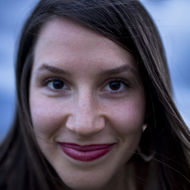
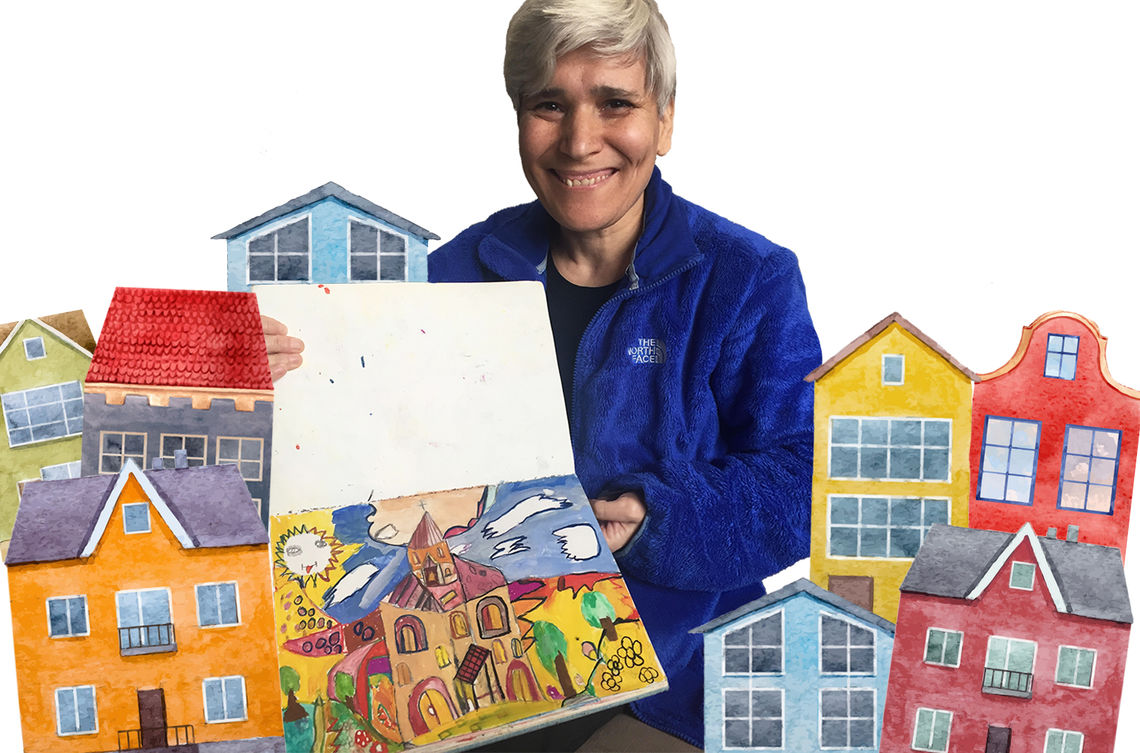
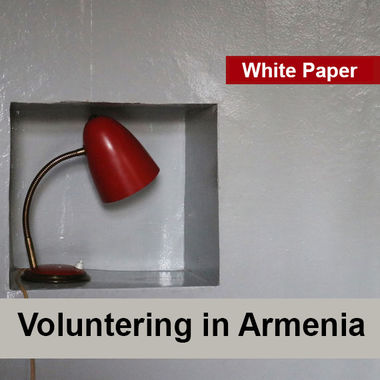
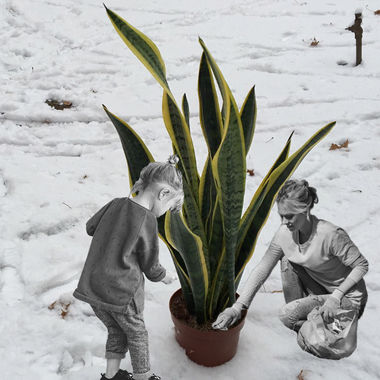
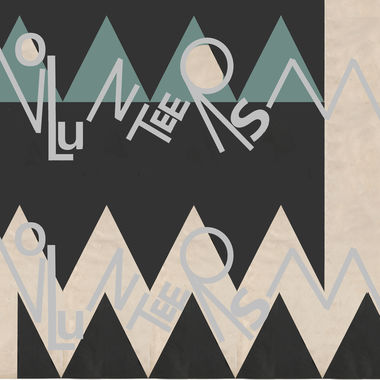
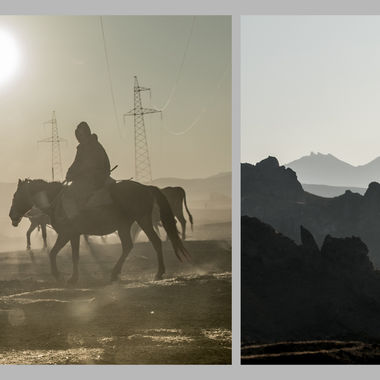

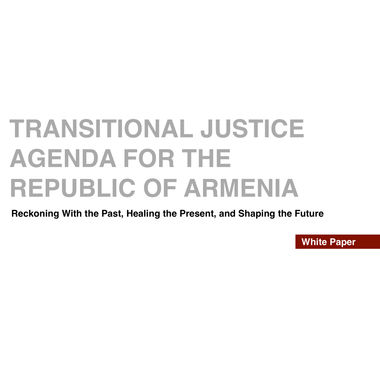
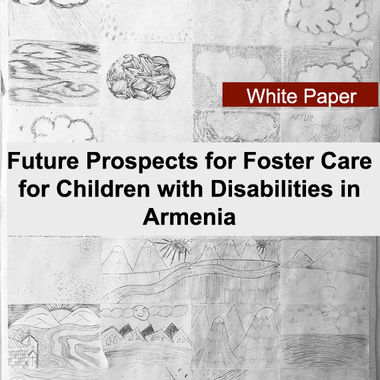


We are pleased to open up a comments section. We look forward to hearing from you and wish to remind you to please follow our community guidelines:
EVN Report welcomes comments that contribute to a healthy discussion and spur an informed debate. All comments will be moderated, thereby any post that includes hate speech, profanity or personal attacks will not be published.